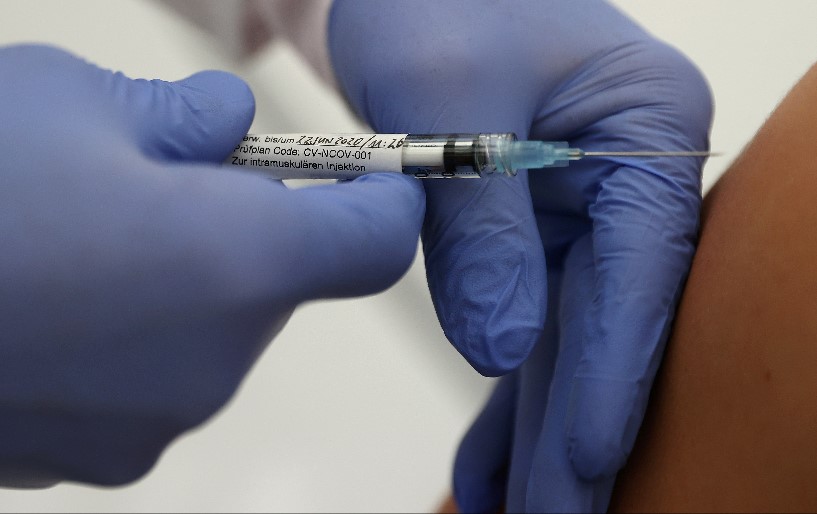Ibn Sina or Avicenna is regarded as one of the most significant thinkers and writers of the Islamic Golden Age. A religious scholar, philosopher, scientist and doctor, Ibn Sina is considered to be the ‘father of modern medicine’.
His seminal treatise the ‘Canon of Medicine’, written in 1025, was used as the standard medical textbook in the Islamic world and Europe up to the 18th century.
European doctors were still doubling up as butchers and barbers, worked in slaughterhouses and were using bloodletting as a form of treatment for most ailments. Ibn Sina had a complex understanding of human anatomy and explored pioneering concepts which led to evidence-based medicine.
If he were alive today, I think he would be pretty dismayed at the recent controversies which have involved misguided and misinformed pseudo-religious arguments in public health.
An anti-vaccination movement is currently growing in strength in Malaysia. Based on Ministry of Health data, the number of parents rejecting vaccinations for their children has almost tripled from 470 cases in 2013 to 1,404 in 2017.
Some have done so in the mistaken belief that vaccination causes autism, a supposed link that has been debunked by a number of peer-reviewed studies, and eventually revealed to be a fraudulent claim.
Vaccine hesitancy has reportedly increased as a result of the disruption caused by the lockdown from March until May under the Movement Control Order. Children who were supposed to be vaccinated under the National Immunisation Programme, ended up being delayed or dropping out of the schedule altogether.
However, the rise in the number of parents refusing to inoculate their new-born children due to suspicion that the vaccines contain allegedly haram substances (i.e. procine DNA) is particularly alarming.
The criteria for determining whether or not a vaccine is to be used should not include consideration whether or not porcine enzymes were used in the manufacturing of the vaccine.
What is most important is that it is of high efficacy, is safe and that it does no harm.
Early childhood vaccination is meant to inoculate a person, particularly infants, children and teenagers against more than a dozen different diseases and illness which include measles, polio, diphtheria, and pertussis (whooping cough).
Refusal to vaccinate would be life-threatening to not only your child but also to the children of the surrounding community. Your child could be barred from going to school, unable to participate in community events and be denied having a childhood like everyone else. It would make her and him, as well as others, vulnerable to otherwise preventable diseases, especially if they are immunocompromised. This could also include adults.
Since 2014, Malaysia has seen an increase in the number of measles, whooping cough and tetanus cases. From 2016 to 2018 we saw the re-emergence of diphtheria with 80 cases which caused 16 deaths. We had 892 cases of whooping cough in 2018, resulting in 22 deaths. The past couple of years have also seen schools forced to closed due to cases of mumps.
Polio has also emerged in the north coast of Sabah and Labuan, infecting several children. First reported in December last year, these were the first paralysis case of polio seen in over two decades.
These diseases are all vaccine-preventable.
Applying halal requirements onto an issue of public health such as immunisation, arguably threatens the safety and well-being of the community as a whole, not to mention the lives of the children in question.
Our society is becoming obsessed in determining the halal or shariah compliant status of everything from mineral water and shopping trolleys to KTM train services and airlines. Government agencies have been tasked to search and scrutinise food products down to the molecular level for evidence and traces of porcine DNA.
We have developed an irrational terror of the pig.
A recent emphasis on ensuring that a COVID-19 vaccine be halal is also a dangerous direction. When coupled with the ongoing coronavirus outbreak and rising vaccine hesitancy, such a requirement would be self-defeating and will undermine public health efforts to ensure as many of the population are vaccinated.
It sets a dangerous precedence for medicines, with no clear medical benefit.
The halal status after all, has no role or attribute in ensuring that a vaccine is safe and effective. Arguably, it serves only a commercial purpose and even that is questionable. It is likely that such a requirement will actually increase the cost of a vaccine.
We should not need to ensure that a vaccine is halal before using it.
Today, we have doctors and surgeons who are professionals and experts in their fields. We have religious leaders and scholars who are proficient in their area of expertise.
There should be no need to refer vaccination or any other essential and scientifically proven public health measure to religious bodies and individuals such as the fatwa council, muftis and ulama.
You don’t see the doctors and surgeons giving religious decrees and issuing fatwas.
So let’s not allow religious authorities, beliefs and dogma dictate our public health decisions.

Azrul Mohd Khalib, is head of the Galen Centre for Health & Social Policy
- This is the personal opinion of the writer or publication and does not necessarily represent the views of CodeBlue.








